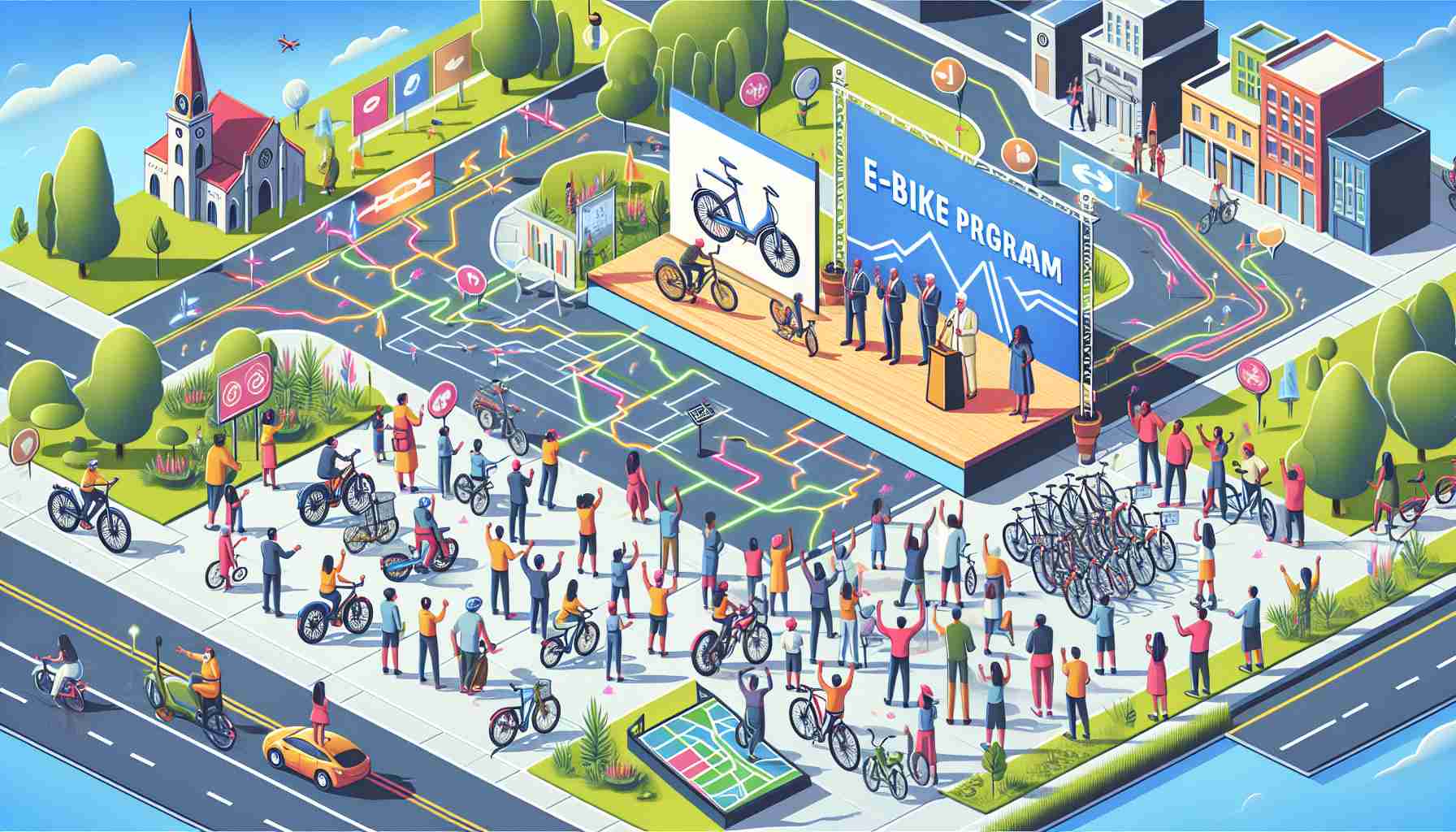Residents of Worcester, MA, gathered at Stearns Tavern over the weekend to celebrate the success of the city’s electronic bike program and to advocate for safer bike routes. The program, which ran for 21 months, provided nearly 100 participants with free e-bikes and collected data on their riding habits to help city officials plan better bike routes. The e-bike program not only taught participants how to ride a bike but also provided them with confidence, freedom, and a sense of community.
Despite the positive reception of the e-bike program, the recent redesign of Mill Street, which included the city’s first parking-protected bike lane, has faced criticism. Some residents believe that the new bike lanes have made the road more dangerous, with drivers using them to pass other vehicles and resulting in crashes with parked cars. A recent accident involving a motorcyclist crashing into a parked car has led to renewed calls to remove the bike lanes.
City officials, however, remain committed to improving cyclist safety. The Department of Transportation and Mobility plans to add more bike lanes throughout the city, including 4 miles on Mill Street alone. Projects on Burncoat Street, Stafford Street, and Grove Street will bring an additional 8 miles of bike lanes by the end of 2024.
Councilor Etel Haxhiaj, who participated in the e-bike program, expressed her desire for more families to have the opportunity to experience safe biking in Worcester. Despite the rain, a group of e-bike program graduates and supporters took a ride along Mill Street, showcasing the need for parking-protected bike lanes. Although some drivers displayed impatience, the cyclists remained committed to staying in the bike lane.
The celebration continued at Stearns Tavern, where the riders pledged to return for another ride. The success of the e-bike program and the push for safer bike routes demonstrate the growing enthusiasm and demand for cycling in Worcester. With continuous efforts to improve infrastructure and increase cyclist safety, the city aims to become more accommodating to cyclists and create a vibrant biking community for its residents.
The success of Worcester’s electronic bike program highlights the growing interest in cycling in the city. With nearly 100 participants benefiting from the program, it is evident that there is a demand for initiatives that promote cycling as a viable mode of transportation. The program not only provided participants with free e-bikes but also collected valuable data on riding habits, which can be used to improve bike routes and infrastructure.
However, the recent redesign of Mill Street, which included the city’s first parking-protected bike lane, has been met with criticism. Some residents believe that the new bike lanes have actually made the road more dangerous. There have been reports of drivers using the bike lanes to pass other vehicles, leading to accidents with parked cars. This negative feedback highlights the challenges that come with implementing new cycling infrastructure and the importance of careful planning and education for all road users.
Despite the backlash, city officials remain committed to improving cyclist safety. The Department of Transportation and Mobility has plans to add more bike lanes throughout the city, including a significant expansion on Mill Street alone. Additional projects on Burncoat Street, Stafford Street, and Grove Street will further enhance Worcester’s biking infrastructure.
The dedication to cyclist safety is not limited to city officials alone. Councilor Etel Haxhiaj, who participated in the e-bike program, emphasizes the importance of creating safe biking opportunities for families. Her support, along with that of other program graduates and cycling enthusiasts, was evident as they braved the rain to showcase the need for parking-protected bike lanes on Mill Street. Despite encountering impatient drivers, the cyclists remained committed to staying in the bike lane, reaffirming their belief in the importance of safe cycling infrastructure.
Overall, Worcester’s electronic bike program and the advocacy for safer bike routes demonstrate the city’s efforts to embrace cycling as a viable transportation option. By continuously improving infrastructure and increasing cyclist safety measures, Worcester aims to create a vibrant biking community for its residents. This growing enthusiasm for cycling is a positive development for the city, as it promotes eco-friendly transportation alternatives and fosters a sense of community among cyclists.
For more information on cycling in Worcester, you can visit the official website of the Worcester City Council.







